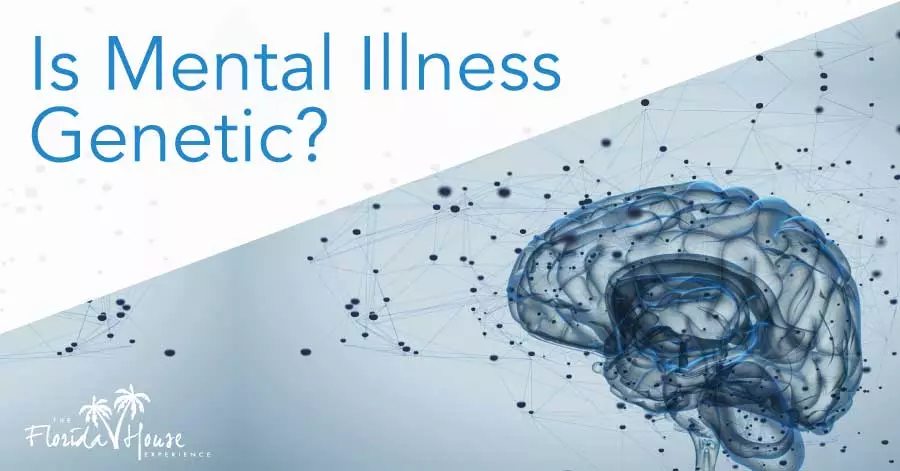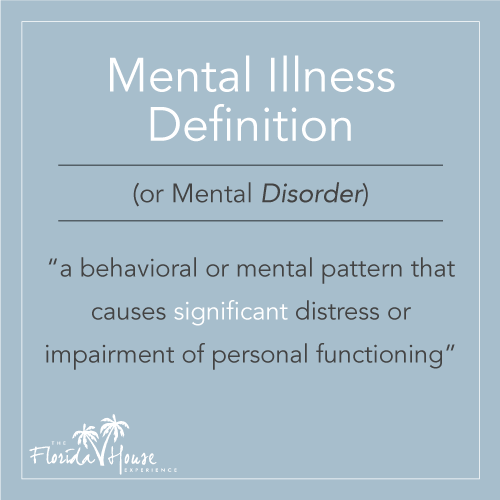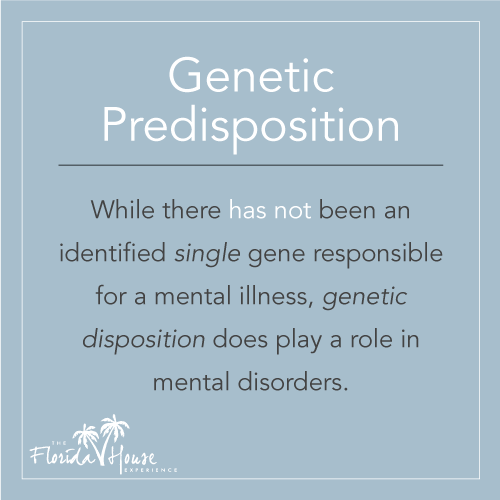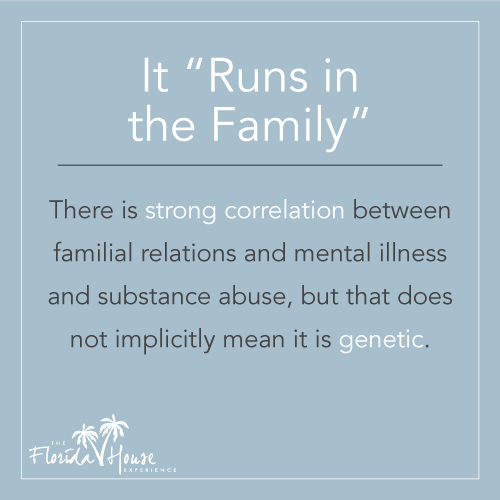
While many factors are known to contribute to the cause of mental illness, one of the biggest questions that remain is whether or not mental illness is caused by genetic factors. A mental illness can be defined as any psychiatric disorder that involves a recurring mental pattern which impairs a person’s behavior and functioning and causes them significant distress. A mental illness is far more serious than an occasional bout of stress or sadness. Someone who has a serious mental illness has little to no control over their emotions or ability to control their mood. We at FHE Health want to help you not only with your addiction but with your mental health.
What Causes Mental Illness?
 The longstanding question has always been why do some people get mental illnesses and what makes them more prone to developing one? What experts do know is that environmental factors play a huge role in causing mental illness. This may come as no surprise because it’s easier to understand why someone who is under significant stress would be more likely to become mentally ill. Environmental factors may include anything from abuse, death, divorce, living in poverty, and much more.
The longstanding question has always been why do some people get mental illnesses and what makes them more prone to developing one? What experts do know is that environmental factors play a huge role in causing mental illness. This may come as no surprise because it’s easier to understand why someone who is under significant stress would be more likely to become mentally ill. Environmental factors may include anything from abuse, death, divorce, living in poverty, and much more.
While it makes sense that environmental factors would play a role in developing a mental illness, what causes people to respond differently to the stressors in their lives? Someone who was traumatized from abuse might have an extremely difficult time recovering for years while someone else might recover after just a few weeks and be okay. All this to say, how exactly might genetics play a part in this puzzle?
How Genetics May Play a Role
Mental illness is such a complex topic, and it’s still not completely known whether genetics play a significant role in its development. How exactly do genetics work anyway? We can break it down for you.
Genes are the segments of your DNA which are found in all of your cells and determine your personal characteristics. Each person has their own genetic makeup inherited from both their mom’s and their dad ’s side of the family. Right now, all we know is that specific genes for mental illness have not been discovered, meaning there are no specific genetic markers that are seen in people who have a mental disorder. For example, if this were the case, people with schizophrenia would all share the same gene that leads to their condition, but no evidence has been found to prove that.
However, this does not mean that a genetic predisposition toward mental illness does not exist. But, what exactly does it mean to have a genetic predisposition toward something? Essentially, it means that you have a certain variation of your genes inherited from your parents that makes you more susceptible to developing a certain condition. Depending on the genetic variation, you may have a larger or smaller chance of developing a particular disease. It is more commonly seen with various cancers such as breast cancer, ovarian cancer, and prostate cancer, which all have a specific gene mutation that increases its’ likelihood of occurring. The same goes for other conditions such as anemia, cystic fibrosis, and more.
Am I At Risk for Mental Illness?

Being aware of your family’s health history is the best way to find clues as to whether you’re at risk for developing mental disorders. Your own genes come from both parents meaning you need to be aware of the health history on both family sides. The most relevant information will come from your first-degree relatives, which would be your parents and siblings. Information from your second-degree relatives, which would be your grandparents, aunts, uncles, cousins, and half siblings, can be helpful as well. Although you can’t always get full information from all of your relatives, whatever clues you can get will be helpful.
While we don’t fully know yet whether there are certain genes that account for the development of mental illness, we are beginning to make some advances through research. One recent study has identified five mental illnesses which may share similar genetic risk factors: autism, ADHD (Attention Deficit Hyperactivity Disorder), bipolar disorder, major depression, and schizophrenia. Research on these mental illnesses have found that they share genetic variances at similar sites on chromosomes. In particular, they found disruptions in calcium channels, which are responsible for neurotransmission in the brain. Neurotransmission is the process by which chemical messages are transmitted within the brain, and plays a huge role in your emotions.

Struggling With a Mental Illness?
For now, mental illness will still continue to be diagnosed purely by description and display of symptoms. Although, from the new research we’re receiving, we can begin to take a deeper look into the underlying biology of mental illness. With more research, we can hopefully be able to further determine whether genetics truly to do play a larger role in mental illness than we’ve been told. If you’re struggling with a mental illness or struggling with addiction, we at FHE Health want you to know you’re not alone and that help is available. You can contact us 24/7 by calling (833) 596-3502. Start your journey toward recovery today!






